
| TSTI ESG Zero Carbon Integrated Management System
TSTI ESG Zero Carbon Integrated Management System - assist enterprise energy efficiency management to ESG sustainable management issues
As development guidelines, the UN passed the “United Nations Sustainable Development Goals (SDGs).” The ESG concepts were introduced in 2004 at first time, regarded as an indicator for evaluating a company’s business operations.
At COP 26 held in Glasgow in November 2021, a contract to reduce carbon emissions by 30% in the next years was signed, prompting companies to take a pro-active approach to lay out carbon reduction counters. The “Paris Agreement” signed by many country governments also prompts companies to lay out plans for “net zero emissions,” which have become the key word in the global industry since 2021. With the fact that the EU will take the lead to promote carbon border tax trial in 2023 and Taiwan’s amendment on the “Climate Change Response Act” in line with international trends, carbon fees expected to be introduced in 2024 are imminent.
Each company is different in size with different needs. Moreover, TSTI has gradually clarified its needs and begun to provide a subscription service for zero carbon integrated management system. The system produces reports to help a company’s sustainability team to conduct self-carbon emission and disclosure for the carbon emission disclosure report required upon inspection by a third-party verification entity.
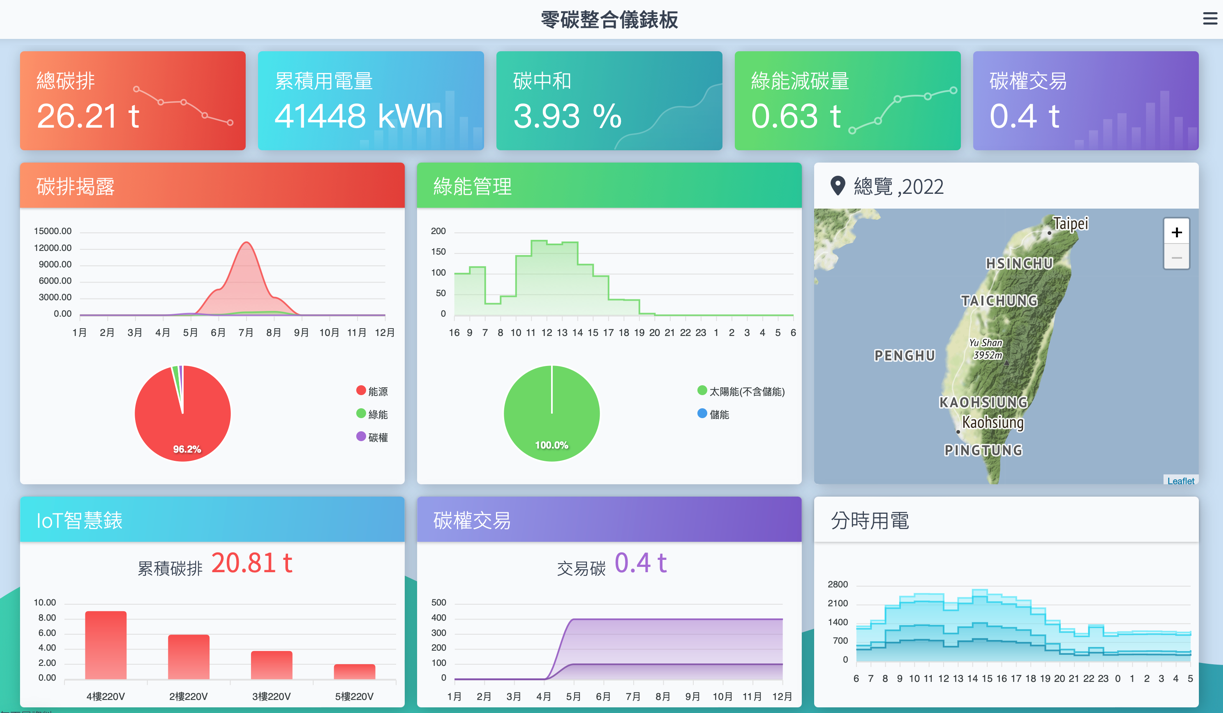
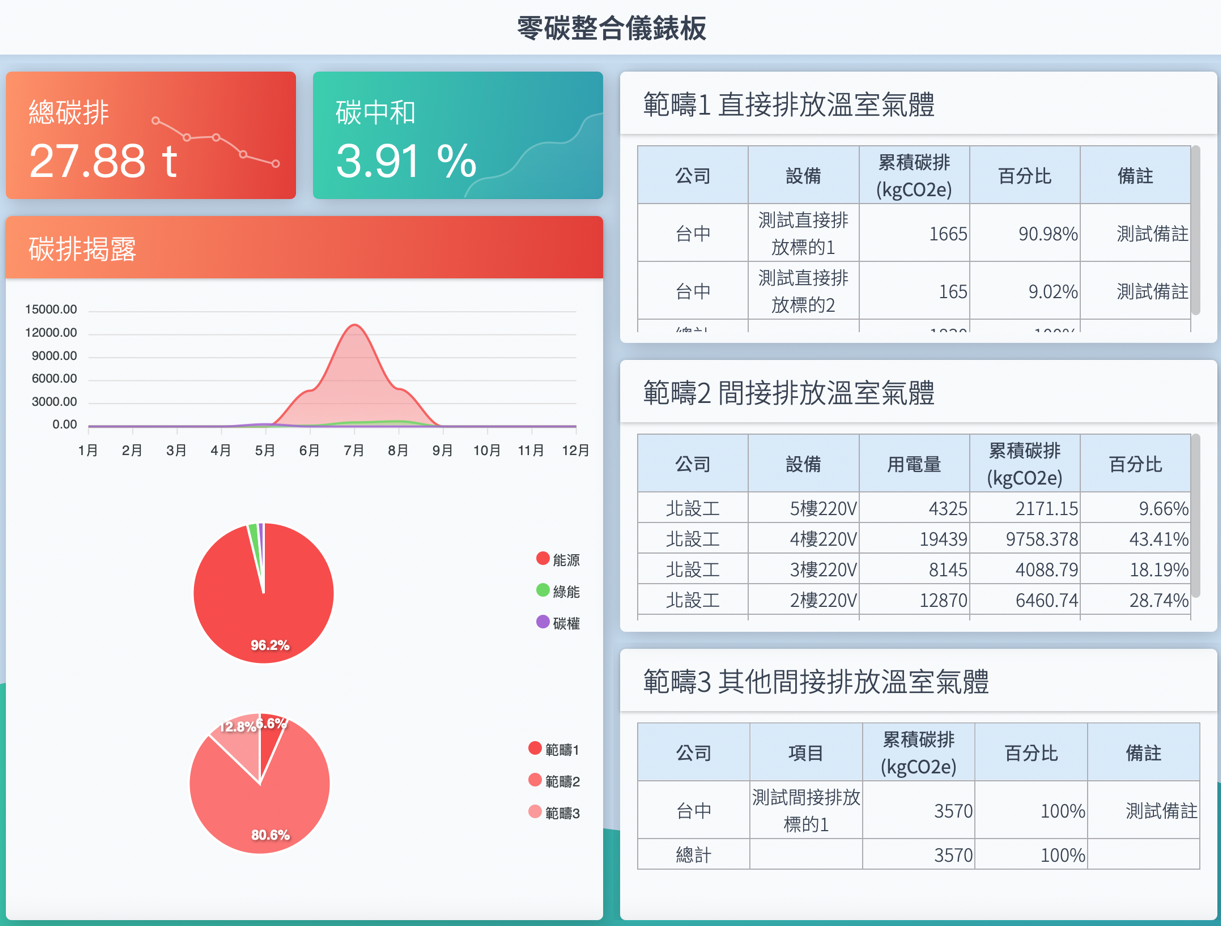
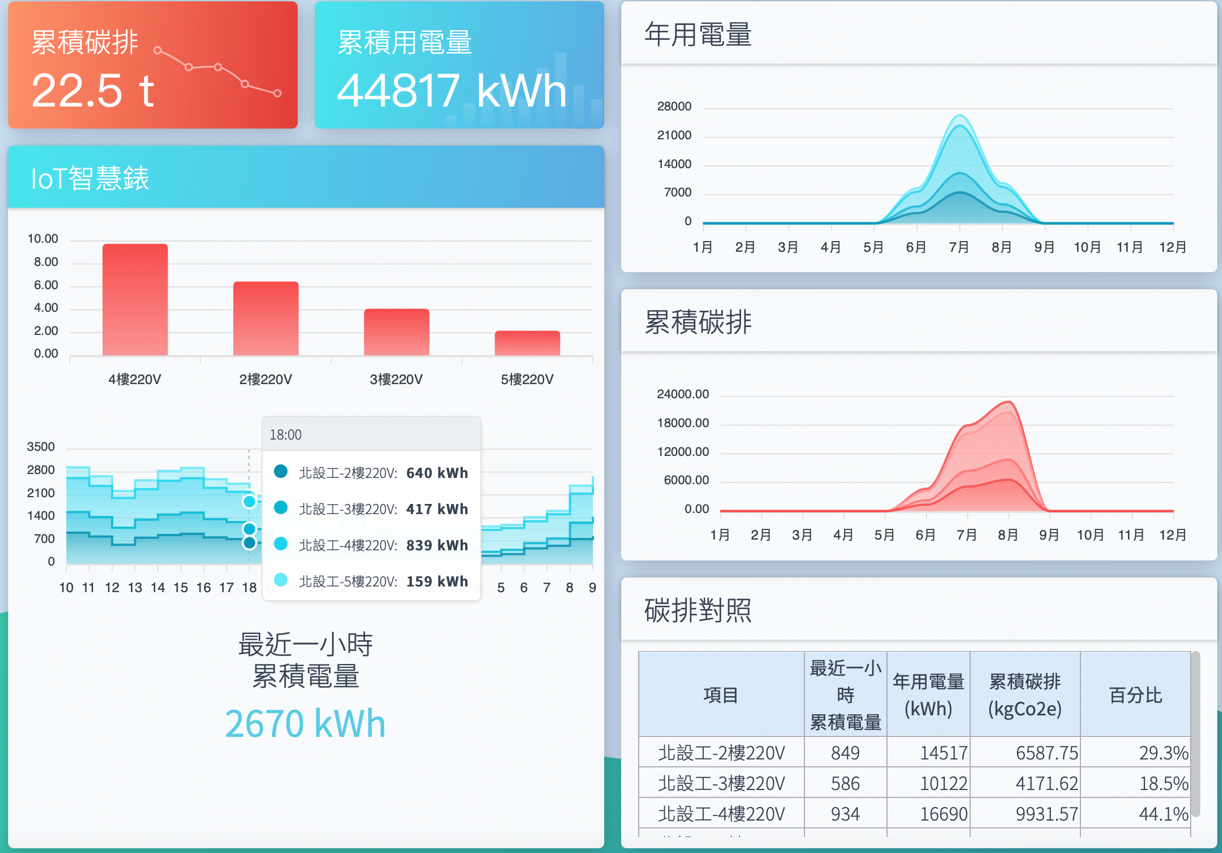
Applicable to/ Application Situations
Applicable to all industries
Domestic specifications:
- Competent authorities include: Bureau of Energy, Environmental Protection Administration, Industrial Development Bureau and Financial Supervisory Commission.
- Performed by the Financial Supervisory Commission in phases starting in 2023 targeting listed companies with capital over NTD10 billion as well as steel and cement industries. Inventories will be completed in 2023 and verification completed in 2024.
- The Environmental Protection Administration plans to charge carbon fees starting 2024 from 288 companies with large carbon emissions in Taiwan, including steel, oil refineries, cement and optoelectronics and semiconductors.
- The Bureau of Energy will make inventories on companies on the list.
- The Industrial Development Bureau continues the energy transformation-related projects.
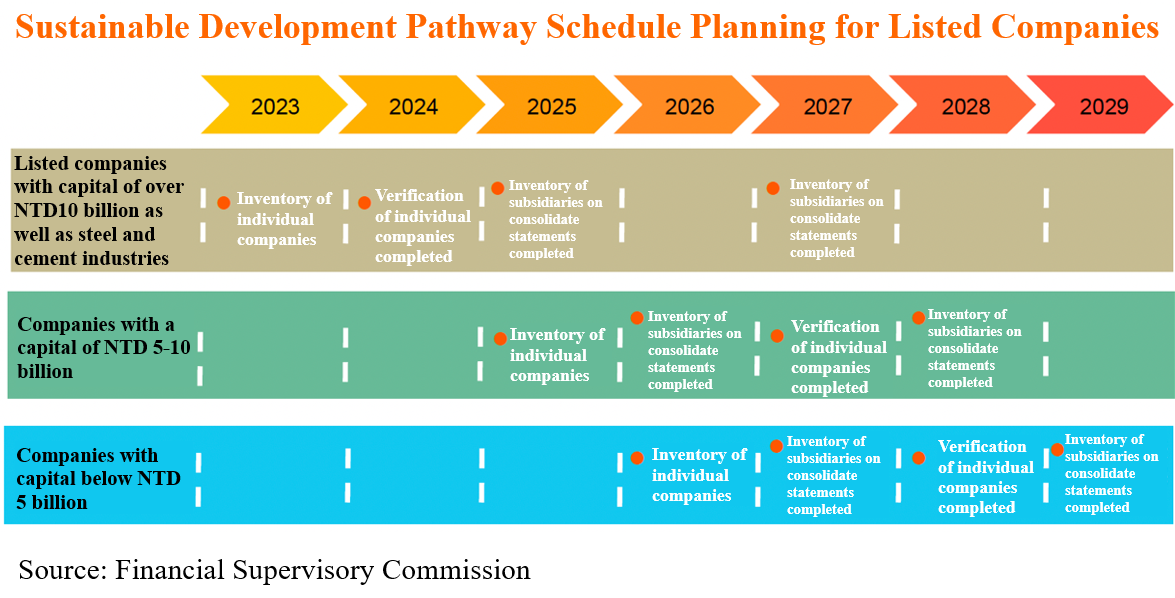
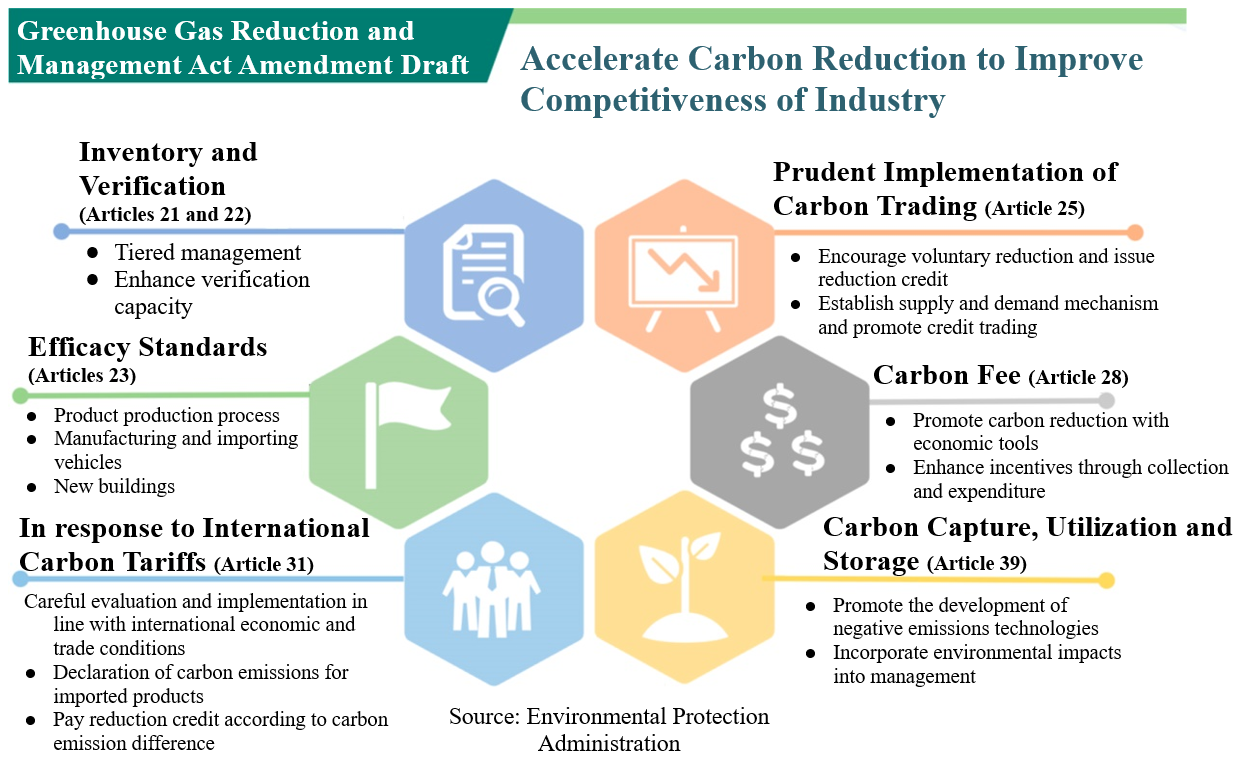
International norms (EU):
- European Union (EU) adopted the Carbon Border Adjustment Mechanism (CBAM) proposal in June 2022. A CBAM report must be submitted per quarter during the transitional period (2023.01-2026.12); a CBAM certificate must be submitted each year after official implementation (2027.01).
- Controlled products: Cement, fertilizer, steel, aluminum, electricity, etc.
International norms (the U.S.):
- The U.S., the Resilient Transition and Competition Act (Fair, Affordable, Innovative and Resilient Transition and Competition Act, FAIR).
- On July 19, 2021, Senators proposed the Fair, Affordable, Innovative and Resilient Transition and Competition Act draft to establish border adjustment measures for imports of aluminum, cement, steel, natural gas, petroleum, coal, etc. The draft is currently being reviewed by the Congress.
- Controlled products: Aluminum, cement, steel, natural gas, petroleum, coal, etc.
Solution Benefits
Net zero strategies must be implemented in a sequence of energy inventory, analysis, reduction and offset. TSTI provides companies that require energy planning and management with application systems. Through smart energy management, companies can reduce high electricity carbon emissions in Scope 2. The rest of the carbon that cannot be emitted can be traded in the Green Electricity Trading Platform by purchasing a green electricity certificate of the best green electricity portfolio in order to achieve carbon neutrality.
In conjunction with the government's net zero target by 2050 and schedule for information disclosure of GHG inventory of listed counter companies, TSTI recommends three phases after making reference to Taiwan's “Climate Change Response Act” draft and the International Energy Agency (IEA), the United States, the European Union, Korea and other net-zero energy pathways:
- The first phase is self-inspection: Perform the company’s internal GHG inventory.
- The second phase is low carbon achievement: Perform the current feasible energy conservation and carbon reduction measures and strive for reducing energy use and non-energy carbon emissions.
- The third phase is moving towards zero carbon development: Increase green energy and give to the mature photovoltaic and hydrogen energy and energy storage systems through energy transformation.
We provide zero carbon pathway solutions for companies to follow and establish carbon reduction targets. In line with the government’s carbon-reduction scheme, we help the sustainable development of companies with the zero-carbon integrated management system through listed companies to link the supply chain.

